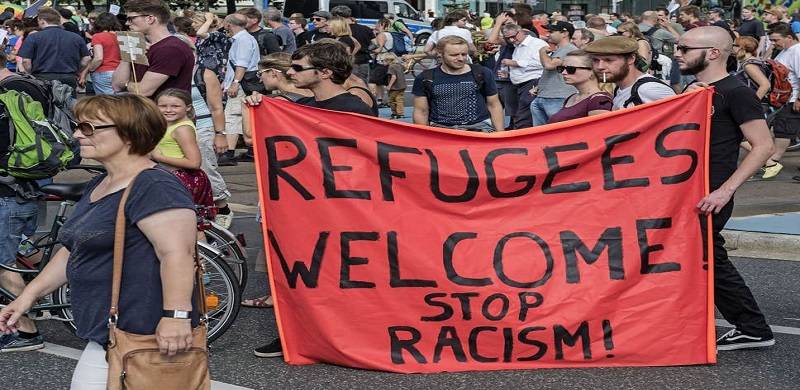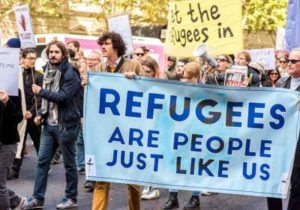
COVID-19 led turbulent times are calling for revisiting discourse on human rights and reiterating accepted responsibilities by states regarding rights of migrants and asylum seekers. An international committee comprising legal scholars has formulated key principles reminding states of their obligations to migrants and refugees amid the corona pandemic which has exacerbated their woes. The international law and treaties for rights make it obligatory for states to open their borders and services in times of current health crisis.
 However, there are persistent concerns as the asylum seekers and refugees face discriminatory treatment both on borders and within states. For example, the United States closing Mexican and Canadian borders, the government of Malaysia turning away boats of Rohingya refugees, and increased rates of violence against women and migrants and refugees.
However, there are persistent concerns as the asylum seekers and refugees face discriminatory treatment both on borders and within states. For example, the United States closing Mexican and Canadian borders, the government of Malaysia turning away boats of Rohingya refugees, and increased rates of violence against women and migrants and refugees.
The pandemic represents an unprecedented global threat that demands effective action however; it does not absolve states from responsibility to protect migrants and refugees according to internationally established norms and human rights regime. The rights to nondiscrimination in health, information and due process, and not be returned to a place that poses risk to life need to be assured by states.
Human Mobility and Human Rights in the COVID-19 Pandemic: Principles of Protection for Migrants, Refugees and Other Displaced Persons - released on April 28 and endorsed by over 800 scholars is the document that incorporates principles of a similar 2008 global scholarly effort International Migrants Bill of Rights Initiative. Their purpose is to advance a set of principles and human rights that are inclusive of marginalized communities and stress upon states to multiply their efforts in fulfilling their obligations. Opening borders and provision of health facilities as provided to citizens would be a promising start.
 However, there are persistent concerns as the asylum seekers and refugees face discriminatory treatment both on borders and within states. For example, the United States closing Mexican and Canadian borders, the government of Malaysia turning away boats of Rohingya refugees, and increased rates of violence against women and migrants and refugees.
However, there are persistent concerns as the asylum seekers and refugees face discriminatory treatment both on borders and within states. For example, the United States closing Mexican and Canadian borders, the government of Malaysia turning away boats of Rohingya refugees, and increased rates of violence against women and migrants and refugees.The pandemic represents an unprecedented global threat that demands effective action however; it does not absolve states from responsibility to protect migrants and refugees according to internationally established norms and human rights regime. The rights to nondiscrimination in health, information and due process, and not be returned to a place that poses risk to life need to be assured by states.
Human Mobility and Human Rights in the COVID-19 Pandemic: Principles of Protection for Migrants, Refugees and Other Displaced Persons - released on April 28 and endorsed by over 800 scholars is the document that incorporates principles of a similar 2008 global scholarly effort International Migrants Bill of Rights Initiative. Their purpose is to advance a set of principles and human rights that are inclusive of marginalized communities and stress upon states to multiply their efforts in fulfilling their obligations. Opening borders and provision of health facilities as provided to citizens would be a promising start.
